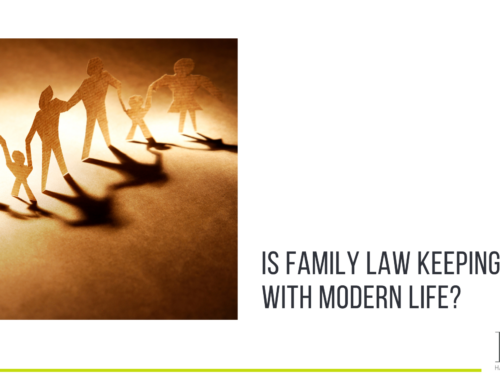If you’ve ever heard the term ‘common law spouse’ or ‘common law marriage’, it’s important to know that there’s no such thing. Despite this, a report by the Women and Equalities Committee showed that 46% of people living in England and Wales believe that unmarried cohabiting couples have the same rights as those who are married or in a civil partnership.
In light of this, and the fact that the number of cohabiting couples is on the rise, the report recommended further protection for cohabiting couples in the event of a separation or a death. The government’s response was to reject the proposed reforms almost in their entirety.
Here we’re taking a look at the current cohabitation law, the reasons behind the reluctance to change, and what the future holds.
The current law for unmarried cohabiting couples
Under the current law, in the event of a separation, unmarried cohabiting couples are unable to make a financial claim for themselves in respect of property, pensions or maintenance. This is the case even if one partner stops work to look after the children.
Currently, there are very few ways for cohabiting couples to protect their assets, with many left to navigate complex land and property law to determine any support they might receive for them and their children.
One option for cohabiting couples is to enter into a cohabitation agreement. This outlines how any joint assets or property will be divided if they decide to separate. It’s also worth exploring whether a declaration of trust would be a worthwhile investment when it comes to any property.
Other ways to ensure a level of protection include:
- Seeking legal advice in respect of how property is owned as an unmarried couple, for example, as joint tenants or tenants in common. You can learn more about this here.
- Making a will.
What’s the problem?
Whilst married couples are afforded fairly substantial protections under the Matrimonial Causes Act 1973, cohabiting couples are not. With approximately six million unmarried couples in England and Wales, and a widespread misconception that common law marriage exists, it’s not hard to see how pitfalls might arise.
There are no protections for cohabiting couples when it comes to inheritance, insurance and pensions, and this can leave the financially weaker party, and their children, extremely vulnerable if the relationship comes to an end.
What’s the proposal for change?
The report by the Women and Equalities Committee suggested a number of changes to the law governing cohabiting couples, including:
- A targeted public information campaign highlighting the risks of religious only marriages which don’t include legal formalities.
- An opt-out cohabitation scheme which grants a legal framework to the rights of cohabiting couples, and which provides a legal definition of ‘cohabitant’.
- A review of inheritance tax rules and intestacy claims for cohabiting partners.
Why were the proposals rejected?
The rejection of the proposals by the government has, unsurprisingly, been met with disappointment by many commentators. As to why they’ve decided against the proposals, the government has stated that further work is needed when it comes to the law governing marriage and divorce, before it can begin to look at changes to the law on cohabitation.
What does the future hold?
Given the rejection of the proposals, it’s absolutely vital that unmarried cohabiting couples take steps to protect their interests. Whether it’s by way of a cohabitation agreement, a declaration of trust or a will, independent legal advice is absolutely critical to ascertain what the options are, and to avoid expensive and protracted proceedings down the line.
If you need advice regarding cohabitation and your legal rights, our friendly team is here to help. To discuss cohabitation agreements, or any other family law matter, all you need to do is get in touch.






